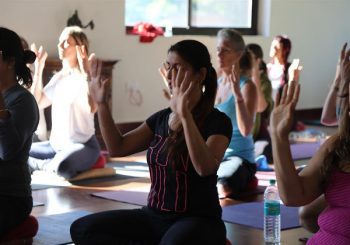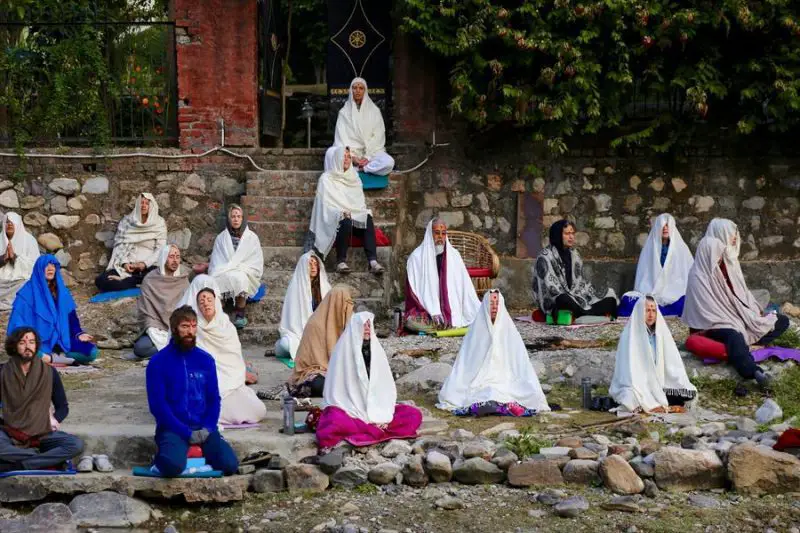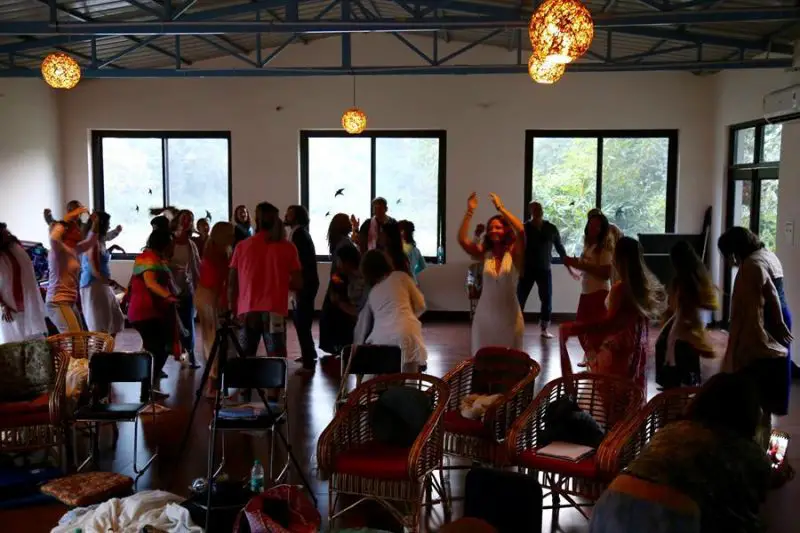By Vivek Roy
Contributing Writer for Wake Up World
Today, yoga continues to increase in popularity throughout the world. People might have many doubts that keep them wondering if it’s worth signing up for a yoga teaching training in Rishikesh, India – are they good enough? Can they sign up as a yoga teacher even if they don’t have a lot of experience? Will they be able to teach right after? How much time do they have to spend on it?
[pro_ad_display_adzone id=”110028″]
These are all valid questions that can influence your decision to become a yoga teacher. This article will help you out with all these questions! Normally you should have some sort of experience before you start as a yoga teacher. But this doesn’t mean you have to be an expert, it means you should be comfortable with basic yoga “asanas”.
Here are 10 things you should know before you embark on yoga teacher training:
1. Let out expectations
No one can tell you what will happen, and no one can tell you how you will feel. When choosing to begin, remember that all you can do is your best. Just let go of what happens at the end – instead, enjoy the journey.
2. Set your goal
Just as you set goals at the beginning of your class, set some goals for your teacher training – but always remember why you practice yoga and why you want to teach it. This solid foundation is useful to come back to if things get a little overwhelming or tough at times.
You may begin a yoga course with an intention to become a yoga trainer. Afterwards, but halfway through you find that actually it is not appealing as it seems first. Alternatively, you may feel like you have no courage to stand up at the front of class and teach- but this can change too!
3. DIY (Do it for yourself)
Practice and learn for yourself; whether you are ready to teach afterwards or not, you must be able to share your love of yoga from an authentic and pure place within you.
4. Don’t be embarrassed over what you don’t know
It will take some time for you to learn or understand some words, subjects and postures. This is nothing to worry about. Treat it as an exploration, be curious, make mistakes, become confused and ask for help without embarrassment.
5. Stock up on tissues
There is a lot of crying! Whether they are your tears or someone else’s this will often be a big part of your teaching training. As we know self- development is a huge thing; it is very important to let go of your baggage before standing up in front of a group of people and telling them to let go of theirs.
Unexpected emotions, tiredness, discomfort and even a sense of being overwhelmed are fully normal when you are choosing to study in-depth. When you find comfort in this discomfort than you are on a journey of growth and self-discovery..
6. Look after yourself
This course is very much a mixture of physical practice and plenty of sittings and postures. Be mindful and kind while bringing your body from sitting position to yoga posture. When training, injuries may occur if you are not comfortable in certain postures. You have to just listen to your body. Always remember that you are just at the beginning: the best trainers or teachers are the ones who have had to learn from themselves first and can pass on this wisdom to others.
7. Learn and study well
Study carefully when it comes to the injury risks of yoga and learn about the mishaps that have happened in modern yoga classes. Students may blame a teacher for their injury due to poor knowledge or lack of communication. When you are training someone how to move their body and how to breathe, it’s essential that you know what you are doing.
8. It’s just like a bumpy ride
At some point you will feel on top of the world; you love yoga like nothing else and you can’t wait to learn more. The next moment, you will feel that you never want to see another yoga mat. It’s OK. Let this happen and take some breaks.
When you feel like you can’t possibly absorb any more information, take a break from your yoga practice and do something completely different. Go for a walk, enjoy time with friends, spend time cooking or whatever else relaxes and de-stresses you.
9. Confronting different personalities
Undergoing long hours of intense growth and learning with the same group of people can be a valuable lesson. As a yoga teacher, it is important to understand that everyone is different. And they have their own set of rules and priorities. Some people’s egos can be difficult to deal with.
Learning about Ayurveda and doshas can be a huge help in recognising other people’s actions.
10. Always remember, this is just the beginning
It is not about throwing shapes, drinking coconut water, or simply showing up and then taking the rest of the day off to shop for some new yoga pants… sorry!
You should focus on your intention, teach from your heart, share what you know and continue to grow.
The essential parts of teaching yoga are both self-reflection (Svadhyaya) and study; when you graduate from your first yoga teacher training course, you’ll likely realise that this is only the beginning of a lifelong journey. There’s no limit to where yoga could take you, and it’s all about practice and learning.
Recommended articles by Vivek Roy:
- 5 of the Most Soothing Yoga Poses to Help You Sleep Better
- 6 Yoga Poses to Increase Happiness and Decrease Stress
- Yoga Poses for Office Workers
About the author:
Vivek Roy is an enthusiastic Yoga blogger and Traveller from India. He has done 200 hours yoga teacher training in India. He loves to travel and share the knowledge of yoga around the world. For more information about him visit his website.
[pro_ad_display_adzone id=”110027″]










